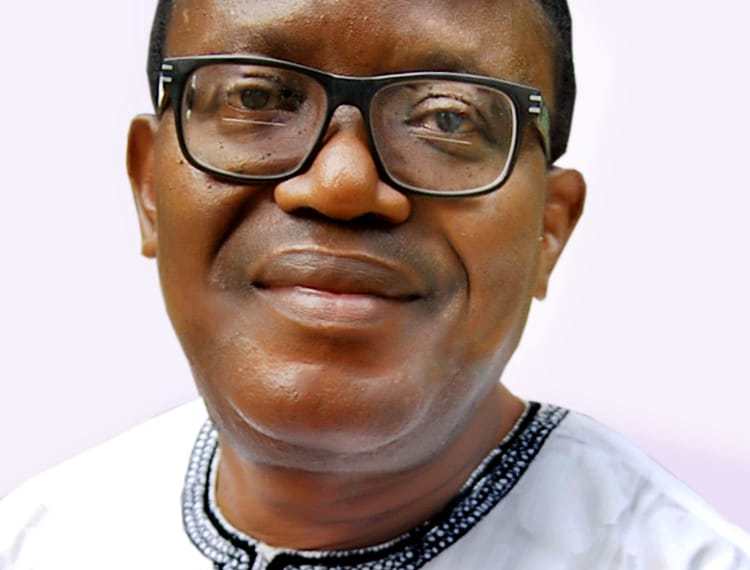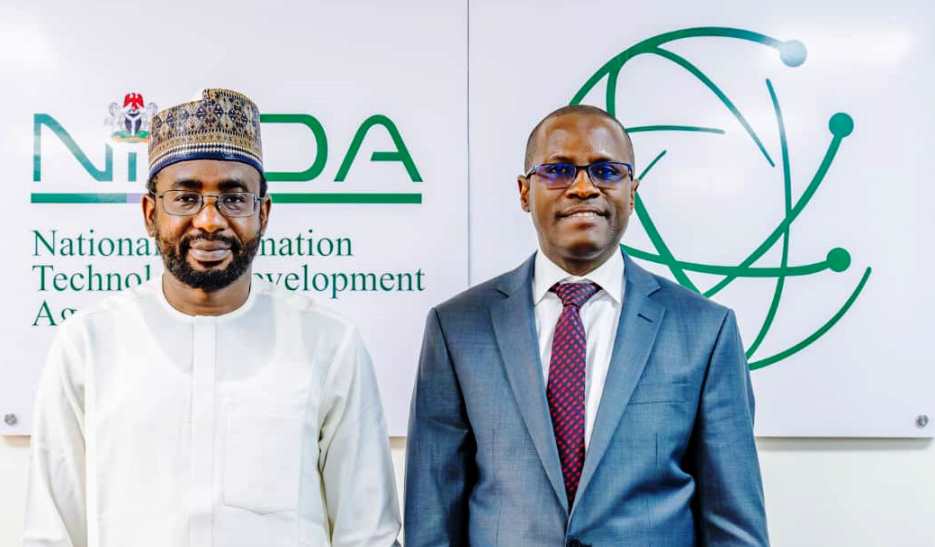Abusafiah Ramzy Ibrahim, a dual Nigerian-Palestinian national, has been a respected member of Abuja’s expatriate community for 35 years. On 22 August, according to human rights advocates and local media sources, he was reportedly abducted from his home in the Nigerian capital. Allegations quickly emerged, implicating a little-known Nigerian security agency that often operates under the veil of diplomatic activities. Since that day, there had been no information about Ramzy’s whereabouts, leaving the local Palestinian community deeply concerned and international observers raising questions about his detention. For many, it was as if he had vanished without a trace, a reality made even more poignant given his leadership role within Nigeria’s Palestinian diaspora.
The timing of Ramzy’s disappearance drew attention, particularly as it coincided with ongoing violence in Gaza. Analysts, including Nigerian diplomat Musa Abdullahi, have pointed out that tensions swelled not long after an Israeli delegation, led by Deputy Foreign Minister Sharren Haskel, visited Abuja in a high-profile diplomatic exchange. Discussions reportedly included topics such as security cooperation and intelligence sharing, sparking criticism from Nigerians who felt disturbed by apparent praise for Israeli actions in Gaza, especially as conflict and humanitarian issues continued to escalate in the region.
While Ramzy remained unaccounted for in what some activists referred to as an undisclosed detention facility, events surrounding the Israeli-Palestinian conflict took a dramatic turn. In a landmark shift, eleven Western nations—including long-standing Israeli allies such as the United Kingdom, France, and Australia—formally recognized the State of Palestine in September 2025. This action built upon earlier recognitions by Spain, Norway, Ireland, and others in 2024, signaling a growing international consensus in favor of Palestinian aspirations for statehood.
The repercussions for Israel were swift within diplomatic circles. When Israeli Prime Minister Benjamin Netanyahu took the podium at the United Nations General Assembly (UNGA) for its 80th session, the international response was stark: many delegates reportedly left the hall in protest, reflecting Israel’s heightened diplomatic isolation. Netanyahu, who was facing charges before the International Criminal Court, found even traditional supporters distancing themselves. Most notably, United States President Donald Trump—a figure previously seen as a strong supporter of Israel—delivered unusually sharp rebukes during their bilateral discussion at the White House on 29 September.
During that White House meeting, President Trump reportedly issued a stern warning to Israel concerning any future actions against Qatar, which he described as a key Middle Eastern mediator. He emphasized the strategic importance of Qatar not only to the region but also to U.S. interests. Trump signed an executive order on the same day declaring that any attack on Qatar would be treated as a threat to U.S. peace and security, stating the U.S. would employ all appropriate measures—including economic and military options if necessary—to defend Qatar. This development, according to many analysts in Abuja and Lagos, marked a significant shift in the approach of the world’s major power toward the conflict and the players involved.
Amidst these rapidly changing dynamics, the Nigerian government responded to mounting pressure and negative publicity by releasing Ramzy from custody, reported several civil society groups. Nigeria’s image on the global stage had suffered greatly as a result of the incident, leading seasoned diplomat, Professor Ibrahim Gambari (former Minister of Foreign Affairs), to embark on a public relations campaign at the UNGA. Although not officially part of the government delegation, Gambari used his presence to speak positively about Nigeria’s longstanding diplomatic traditions and Africa’s place in international affairs, granting interviews and participating in key forums.
On 23 September at the UNGA @80 Pact Innovation Forum, Gambari, who previously held UN Special Envoy roles for Myanmar, Zimbabwe, and Cyprus, appealed for urgent funding for the United Nations. He warned that, without additional support, up to 20 percent of UN staff could face redundancy, while major humanitarian programs such as the World Food Programme and refugee assistance were at risk of damaging cutbacks. His advocacy, echoed by several West African representatives, highlighted the stakes for ongoing humanitarian efforts in conflict zones including Palestine and beyond.
Meanwhile, new peace proposals began to emerge. Trump unveiled what he described as a “20-point plan” to resolve the crisis in Gaza. Among its provisions was a call for the “deradicalization” of Gaza, with the stated aim of eliminating all terrorist activity—though critics countered that the plan failed to acknowledge the toll of Israeli military operations on civilians. The proposal drew particular interest in Nigeria’s diplomatic community, given its significant implications for lasting peace and regional security.
Another core element of the peace plan involved the proposed redevelopment of Gaza: “No one will be forced to leave Gaza, and those who wish to leave will be free to do so and free to return. We will encourage people to stay and offer them the opportunity to build a better Gaza,” the document read. This marked a clear policy shift from earlier suggestions of population transfer, a concept widely criticized both in West Africa and globally. Observers in Lagos pointed out that local communities have long supported the right of displaced peoples to return and rebuild, making this proposal particularly relevant.
The peace blueprint called for an immediate ceasefire with the expectation that violence in Gaza would end, and included a commitment to the return of all hostages—both living and deceased—within 72 hours after Israel’s formal acceptance of the agreement.
In a reciprocal arrangement, Israel would be expected to release around 250 prisoners facing life sentences, as well as an additional 1,700 Gazans reportedly detained after 7 October 2023, including all women and children.
The plan further recommended that full humanitarian aid be allowed into Gaza unimpeded, and that Hamas members wishing to leave the territory be offered safe passage, provided they agreed to disarm.
One of the most debated proposals involved governance. Under the plan, Gaza would no longer be temporarily governed by traditional Palestinian authorities, but rather overseen by a technocratic, apolitical Palestinian committee tasked with managing daily public services. This move drew mixed reactions from analysts in both Nigeria and Ghana, with some cautioning that it could raise concerns about local autonomy and outside influence.
Even more controversial, the so-called “Board of Peace” overseeing this transition would, according to leaked details, be headed by U.S. President Donald Trump himself—effectively making him, at least nominally, the head of Gaza’s transitional authority in addition to serving as U.S. President. Such a proposal, while unprecedented, was received with skepticism in West African political circles, where concerns about national sovereignty run high.
Adding another dimension, former UK Prime Minister Tony Blair was named as a participant in the proposed new administration for Gaza, echoing his past involvement in Iraq’s reconstruction. Blair’s record, especially allegations surrounding false pretexts in the Iraq invasion, was noted by international legal scholars and human rights groups, raising fresh debate about accountability in such high-stakes diplomatic roles. According to Dr. Aisha Bala of Maiduguri University, “while the need to end violence is urgent, any oversight by individuals linked to past conflicts must be scrutinized carefully.” Still, some observers argue that political realities may necessitate difficult partnerships to secure peace.
Trump’s plan also outlined a multi-faceted development agenda for Gaza, including new economic initiatives and the establishment of an International Stabilisation Force (ISF). The ISF would train and support vetted Palestinian police forces, aim to secure Gaza’s borders, and facilitate Israel’s withdrawal from the territory under clearly defined timelines tied to demilitarization milestones.
Highlighting the broader objectives, Trump said: “While Gaza redevelopment advances, and when the PA [Palestinian Authority] reform programme is faithfully carried out, the conditions may finally be in place for a credible pathway to Palestinian self-determination and statehood, which we recognise as the aspiration of the Palestinian people.” This sentiment resonated throughout African diplomatic circles, particularly among those advocating for a rules-based world order.
However, while Trump’s proposals promised pursuit of peace even if Hamas rejected or delayed the terms, critics noticed a conspicuous silence regarding Israel’s potential rejection or noncompliance. This asymmetry did not escape Lagos-based international relations analyst Chidozie Umeh, who remarked, “For peace to endure, all parties must be held equally accountable.” Nigerian, Ghanaian, and broader West African observers are watching closely, mindful that the stakes for precedent, sovereignty, and humanitarian outcomes extend well beyond the Middle East.
As Nigeria continues to recover from this diplomatic turbulence, questions linger about accountability, transparency, and the protection of minority communities within the nation. Also, many look to the wider shifts in global diplomacy—and how West African voices can contribute to more just, peaceful resolutions worldwide.
Do you think Nigeria’s handling of foreign relations in moments like this strengthens or weakens our international reputation? What lessons should we draw as citizens and as a country? Share your views below and follow us for future analysis and updates.
Have a story, opinion, or news tip to share? Reach out and get your story featured or discuss story sales—contact us now at story@nowahalazone.com.
For general support, email support@nowahalazone.com.
Join the conversation and stay informed—follow us on
Facebook,
X (Twitter), and
Instagram for more local and global news updates!










